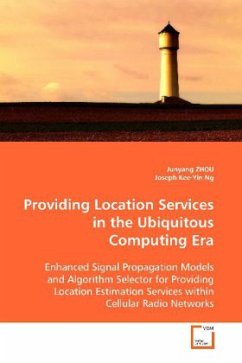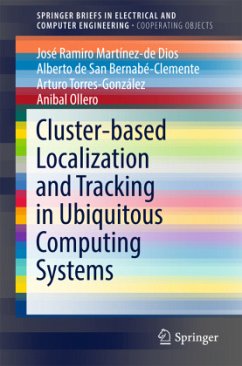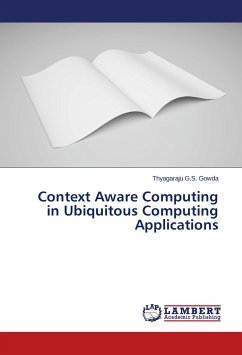
Ubiquitous computing and human activities in public places
An activity-centered ubiquitous computing framework for supporting occasional human activities in public places
Versandkostenfrei!
Versandfertig in 6-10 Tagen
39,99 €
inkl. MwSt.

PAYBACK Punkte
20 °P sammeln!
A major challenge to ubiquitous computing system designers is the provision of walk-up-and-use solutions for supporting activities performed by occasional visitors to a particular place. Ideally, people should perform an activity requiring computing tools as they perform any other activity, by focusing on the activity itself, and using the computing tool as naturally as other tools. There is thus the need to center the design and development of ubiquitous systems in the human activity, in order to transparently support activities that take place in the physical world. This work thus follows an...
A major challenge to ubiquitous computing system designers is the provision of walk-up-and-use solutions for supporting activities performed by occasional visitors to a particular place. Ideally, people should perform an activity requiring computing tools as they perform any other activity, by focusing on the activity itself, and using the computing tool as naturally as other tools. There is thus the need to center the design and development of ubiquitous systems in the human activity, in order to transparently support activities that take place in the physical world. This work thus follows an activity-centered approach to ubiquitous computing and contributes with ActivitySpot, a conceptual and software framework targeted at providing support for occasional visitors to public spaces. The conceptual framework models human activity and user interaction with the ubiquitous computing system. The software framework includes an infrastructure for providing the actual support to occasional visitors, tools for deploying ubiquitous computing solutions by non- computer-expert users, and a software library for developing the support to new activities.












